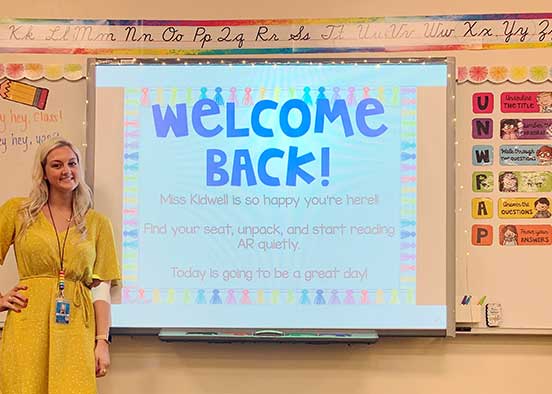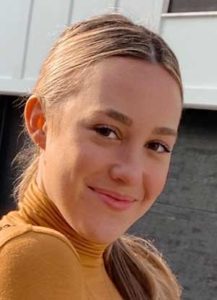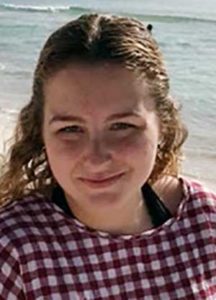Teachable moments often arise from unexpected, awkward or unsettling circumstances, providing an opportunity to draw something positive from a negative situation. The coronavirus pandemic has certainly yielded its share of life lessons for grownups as well as children, from basic concepts like the importance of proper hygiene to more complex matters such as the science of viruses and the ethics of social distancing.
No one could have predicted such issues would be part of the lesson plan when a select trio of Florida Gulf Coast University education majors were selected for paid teaching positions during their graduating semester. Weeks into the spring term, the coronavirus curveball forced these teachers-in-training to quickly reconfigure their elementary school curriculum for remote learning while also finishing up their own undergraduate education online at FGCU.

Like the shining STARs they are, Mia Vota, Allison Kidwell and Skyler Anderson rolled with the changes. STAR, in this case, refers to the Student Teacher Advanced Recruitment program, a partnership between FGCU and the local Lee County School District. It started in fall 2018 as an avenue to address chronic teacher shortages while providing on-the-job experience for FGCU’s more advanced student-teachers.
The latest cohort of STAR teachers had the unprecedented added challenge of leaving the familiarity of the traditional classroom for the brave new world of distance education — not to mention the stress of a public health crisis distracting their pupils.
“Learning is an ongoing process for all of us,” says Vota, who’s remotely teaching second grade at Hancock Creek Elementary School in North Fort Myers. “There’s a lot to learn about technology and adapting, but it’s beneficial in the long run. This situation across the world is kind of going to change everything.”
Kidwell, who’s teaching fourth-grade language arts at G. Weaver Hipps Elementary School in Lehigh Acres, says the experience has helped prepare her better for teaching in any scenario.
“I have had to use my critical-thinking and problem-solving skills to come up with lessons that could be completed virtually,” she said. “Experiencing all of this before I even graduate has showed me just how quick acting and thinking teachers must be to serve their students. I am better equipped for thinking on my toes because of this experience. That will help me in the future as a teacher.”
Remotely teaching science, social studies, math and language arts to fifth-graders at Tice Elementary School has shown Anderson the importance of patience and flexibility.
“One thing I have learned so far is to just take it day by day,” she says. “With remote learning, things are changing daily — if not hourly. You also have to learn to give grace. Everyone is in a different situation, and you have to understand that some things just may not be possible for some students.”
How to become a STAR
To qualify for the STAR program, education majors must have passed all Florida Teacher Certification Examinations, completed all coursework, obtained recommendations of a supervisor or cooperating teacher, and received effective ratings on evaluations. If selected for STAR, they are hired by the school district to be the teacher of record in a classroom — rather than co-teaching under the immediate supervision of a classroom teacher, as typical student-teachers do in their final semester. The College of Education supplies an FGCU mentor in addition to the usual supervisor who evaluates the teacher candidate.

“We typically have between three and eight students who apply each semester, and the majority of them meet the criteria to proceed,” says Diane Kratt, Ed.D., director of clinical experiences and partnerships in the College of Education. “The STAR student-teachers are typically offered contracts with the district near the end of the semester.”
The program adds an extra level of preparation for FGCU graduates who have already met the rigorous standards of the college, which boasts a 100 percent graduate employment rate for pre-K to 12th-grade teachers. Research proves that teachers with limited preparation tend to leave the field at rates two to three times higher than those who have had comprehensive preparation before they enter the profession.
“The STAR program has been an awesome experience for me,” says Vota, who’s teaching from her home in Parkland on the east coast. “It’s a challenge still being a student and taking on the role of teacher of record for 21 students, but the second-grade team at my school has helped me along the way. It’s an experience I will never forget. It has helped me develop as a teacher.”
Engaging students remotely
This semester’s STARs entered their classrooms with varied levels of experience incorporating online learning resources in their lesson plans. They quickly adapted to platforms including Google Classroom, Zoom and i-Ready. A typical school day now involves virtual office hours, though students tend to reach out any time of day or night depending on their home situations; some children have to share laptops with siblings or may need a little extra nudging to keep up with assignments.

“My students are responding really well — better than expected, actually,” Anderson says. “They all seem pretty eager to work. It’s amazing how much they think they don’t like school — until they don’t get to go anymore and now they miss it. I think they also find it cool to get to do something out of the ordinary.”
The high-tech aspect of learning online might appeal to youngsters, and it could become the new normal for the latest generation of schoolteachers. Will it alter the way they see their profession?
“This situation hasn’t changed my feelings about teaching — I still would love to be in the classroom with students,” Vota says. “I miss them.”
There are social aspects of the classroom environment that can be hard to duplicate online — impromptu conversations, shared laughs, doting on kids who appear to need a little extra TLC. But FGCU’s STAR teachers are making the best of teachable moments.
“Remote teaching is never something I thought I would experience, especially this early in my teaching career,” says Kidwell. “It’s definitely a learning experience for both them and me. I love being able to still be in touch and check in with them. I miss all my students immensely.”